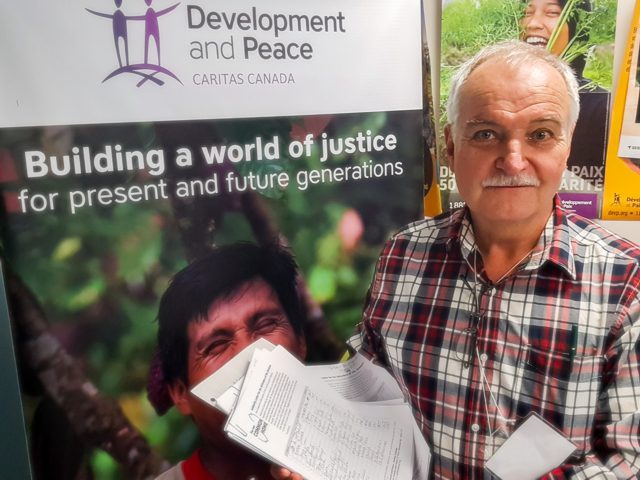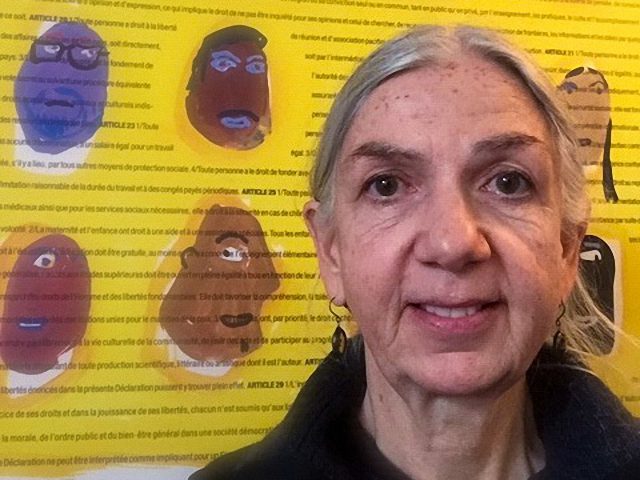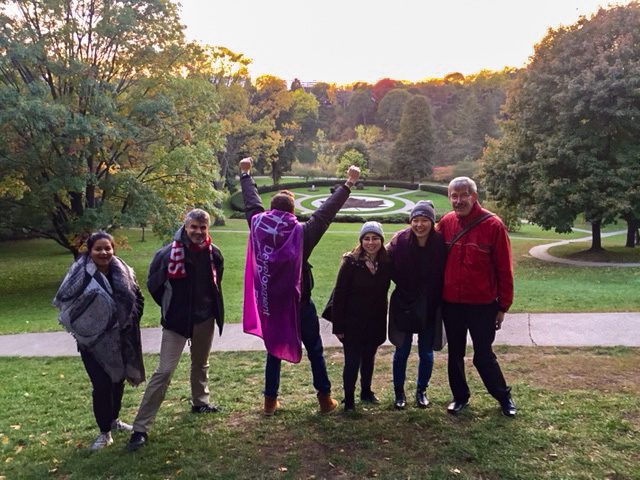The World Day of Social Justice, which has its origins in the international labour movement, is observed annually on February 20. The United Nations places “the pursuit of social justice for all” at the core of its “global mission to promote development and human dignity.” But what is social justice and how can ordinary people strive for it?
Who better to grapple with this question than Development and Peace — Caritas Canada staff and members who lead our work in the Global South and in Canada? Here, then, are their reflections on social justice:


Jess Agustin (right), thinks of social justice in terms of transformation.
“Social justice is about transforming unjust and violent social orders and relationships through consciousness-raising, systematic organizing and mobilizing those who are marginalized and oppressed politically, economically, ecologically and socially.
“An individual can’t do it alone. One must become an integral part of social justice movements that are aspiring for fundamental change and that amplify the voice of the voiceless—locally and internationally. An individual must take an active part in solidarity movements that create and nurture communities of committed people who are in solidarity with the poor, who are already creating and innovating alternatives to the current unjust and broken social order.”
— Jess Agustin, Programs Officer


Frank Fohr believes that awareness is the first step to social justice.
“Clearly we live in a world of ‘haves’ and ‘have-nots.’ The difference is largely an accident of the situation (location, family background, ethnicity, etc.) that we are born into. Social justice tries to create a level playing field where everyone has an opportunity to live their full potential.
“It is easy for us to get caught up in our own lives. We are not always aware how our actions and lifestyles are implicated in the injustices that others face. Therefore, the first step is awareness. The in-Canada program of Development and Peace tries to educate Canadians about the causes of injustice, and the small changes we can make in our lives to bring about a more just world.”
— Frank Fohr, Member, International Programs Committee, National Council


Mika Lévesque questions what she does instead of wondering what she can do.
“For me, social justice means peace, because injustices are the basis of many conflicts.
“Instead of ‘What can I do?’, I find it more interesting to ask myself what I already do for social justice. What is the link between my actions and social justice? Doing what we are already doing [for social justice] helps us do more.”
— Micheline (Mika) Lévesque, Programs Officer – Asia


Keith Gauntlett (far right) draws on his Catholic faith to understand social justice.
“It’s difficult for me to separate out my faith from my desire to participate in movements to help in making a better world. These words from Justice In The World, a document from the 1971 Synod of Bishops in Italy ring true to me to this very day: ‘Action on behalf of justice and participation in the transformation of the world fully appear to us as a constituent dimension of… the Church’s mission for the redemption of the human race and its liberation from every oppressive situation.’
“God asks all of us, believer and non-believer alike, to hear the cry of the poor and to make a positive difference. We can do so in many ways (in active support of Indigenous peoples’ struggles for equal rights, by supporting economic justice initiatives, particularly those involving women, by participating in the peace movement, or so on). Pursuing meaningful social change is best done in movements among people who have been moved to play a part. In community. For me, Development and Peace is one such community. It is a way to pursue social justice and thereby to build a better world. Together.”
— Keith Gauntlett, Member, International Programs Committee, National Council


Understanding the mechanisms of exclusion and oppression is important for Cécile Famerée (second from left).
“Social justice is about committing to fighting exclusion in all spheres of society.
“What can we do? Try to understand asymmetries in power relations, especially in developing countries. Can we try to understand who benefits from what? Who controls the earth? Who is excluded? We can have a critical reflection on easy technical solutions. We can see what certain agro-industrial policies mean for rural groups and their living environment. We can understand the oppressions experienced by women, children and other vulnerable groups. We can be united!”
— Cécile Famerée, Programs Officer – Burundi and Madagascar


Equal access to a good life underpins Stefany Dupont’s conception of social justice.
“For me, social justice means respecting the rights of each person, so that all individuals can, on an equal basis, have the opportunity to enjoy a full and healthy life.
“To act for social justice, we can recognize our privileges and use them for the common good rather than the accumulation of wealth at the expense of marginalized people.”
— Stefany Dupont, Animator – Montreal


To Stéphane Vinhas (right), social justice constitutes the restoration of rights.
“For me, social justice is filling an existing void, on the principle of humanity. Contributing to social justice means working to restore impoverished and excluded people to their rights, so that they can regain their dignity as human beings.
“Each individual or, better yet, each collective, can contribute by committing, in their own way, at their level, according to their convictions and talents, by giving their personal wealth, i.e., their time, voice, ideas or money in order to change people’s lives.”
— Stéphane Vinhas, International Emergency Relief Coordinator
We invite you to join Development and Peace, our partners and our sisters and brothers in the Global South in the global struggle for building a world of justice. Share your own reflections on social justice on our Facebook page.

